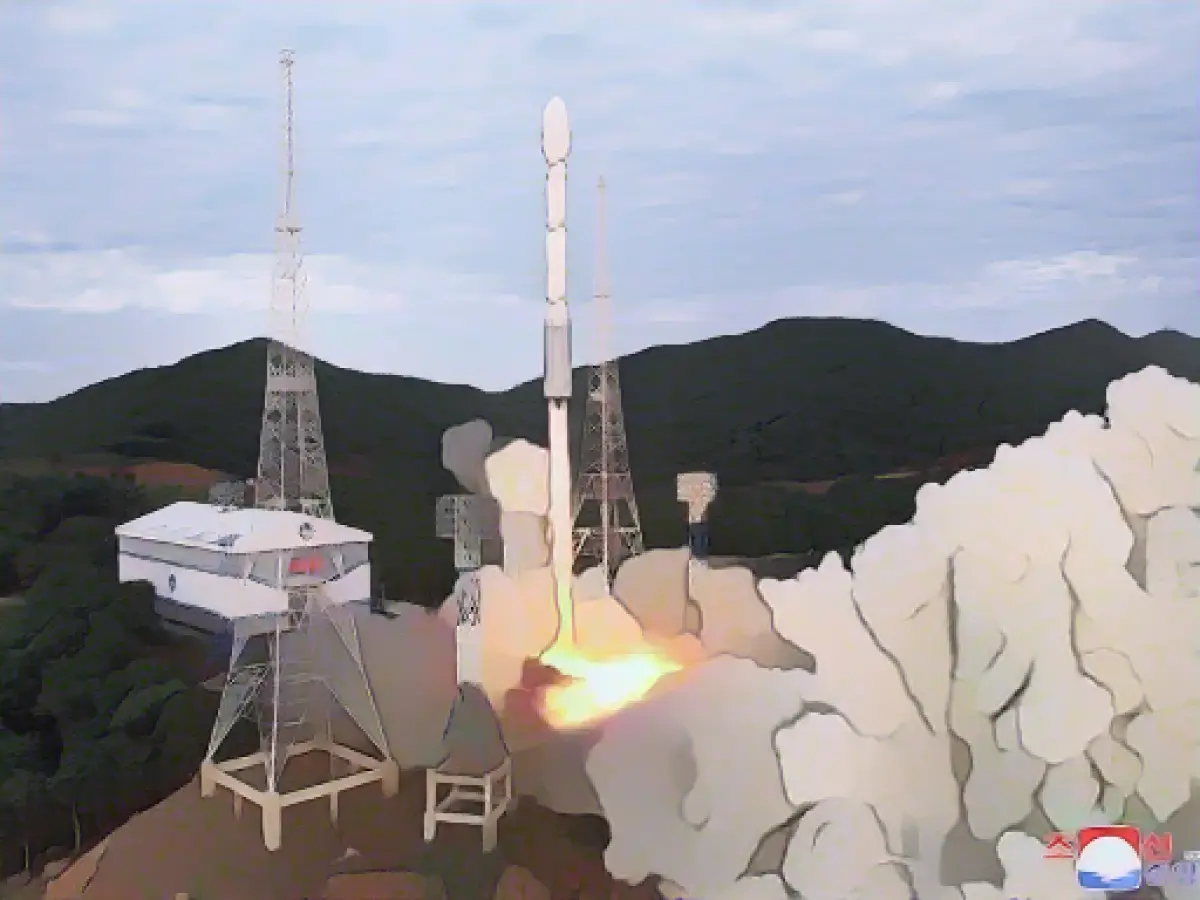North Korea Drops Satellite Launch Warning, Sparks Global Concern
New reports suggest North Korea is preparing for another attempt to launch a military spy satellite. The Japanese government shared intel indicating a possible rocket launch between midnight tonight and December 1st, aimed to send a satellite into space.
So far, this year's previous two attempts to deploy a military spy satellite were unsuccessful. Japan's Prime Minister Fumio Kishida encouraged his administration to collaborate with its protective power, the USA, and neighboring South Korea, urging North Korea to halt the planned launch.
Experts believe the technology used for space rockets and long-range military missiles is almost indistinguishable. Western nations, including the USA, South Korea, and Japan, condemned North Korea's failed missile launches in May and August, accusing it of leveraging technology that directly impacts its ballistic missile program.
It's noteworthy that UN resolutions affirmatively prohibit North Korea from launching ballistic missiles with any range. Some of these missiles could potentially be armed with nuclear warheads. The Japanese government revealed North Korea marked three sea perimeters, where debris from the missile may fall. These danger zones are situated west of the Korean Peninsula and east of the Philippine island, Luzon.
The existing conflicts between North Korea and its surrounding nations have ignited concerns about the country's space rocket launches, as some experts contend the technologies are similar. The international community experiences collective criticism towards North Korea's prior attempted satellite deployments, asserting their connection to the ballistic missile program.
International Reactions
- UN Security Council Resolutions: UN Security Council resolutions view satellite launches as a violation of the prohibitions against using ballistic missile technology for military purposes. The UN Secretary-General and other nations have criticized attempts, reiterating the importance of international law adherence.
- South Korea and Japan: Both nations expressed concerns over the launch. South Korea’s Defense Minister, Shin Won-sik, noted that the Malligyong-1 satellite's status as operational remained uncertain as of February 2024. Japan's defense minister warned residents to seek shelter in the event of potential missile tests.
- United States: The U.S. has denounced North Korea's plans, expressing concerns about potential regional and global security threats. As a follow-up, the U.S. maintained its readiness stance and conducted joint military drills with South Korea in response to the missile tests.
- China and Russia: Although generally supportive of North Korea, China and Russia also faced pressure from the international community to curb North Korea's military activities. Despite this, their responses have faced criticism for being inadequate.
Implications
- Technological Advancements: Failed satellite attempts suggest North Korea is experimenting with new technologies, like more efficient liquid oxygen engines, that may potentially augment their missiles and satellite capabilities.
- Military Deterrence: The exploitation of reconnaissance satellites is part of North Korea's broader strategy in growing military deterrence capabilities. This initiative includes leveraging advanced military technologies from Russia and China to support its nuclear and missile programs.
- Economic and Diplomatic Consequences: Continued efforts to develop reconnaissance satellites, despite global condemnation, could result in additional economic sanctions and diplomatic isolation. North Korea's dependency on China and Russia for economic aid and military technologies raises questions about the program's sustainability.
- Regional Stability: The unveiling of reconnaissance satellites, even with possible military applications, intensifies regional tensions. It reignites conflicts between North Korea and its neighbors, South Korea and Japan, and highlights the imperative of persisting international pressure to curtail North Korea's military aspirations.
In short, North Korea's possible military satellite deployment, in spite of its unsuccessful past attempts, is a valid cause for global concern. The outcomes encompass elevated regional tensions, potential technological advancements, and continuous diplomatic and economic pressure on North Korea.








